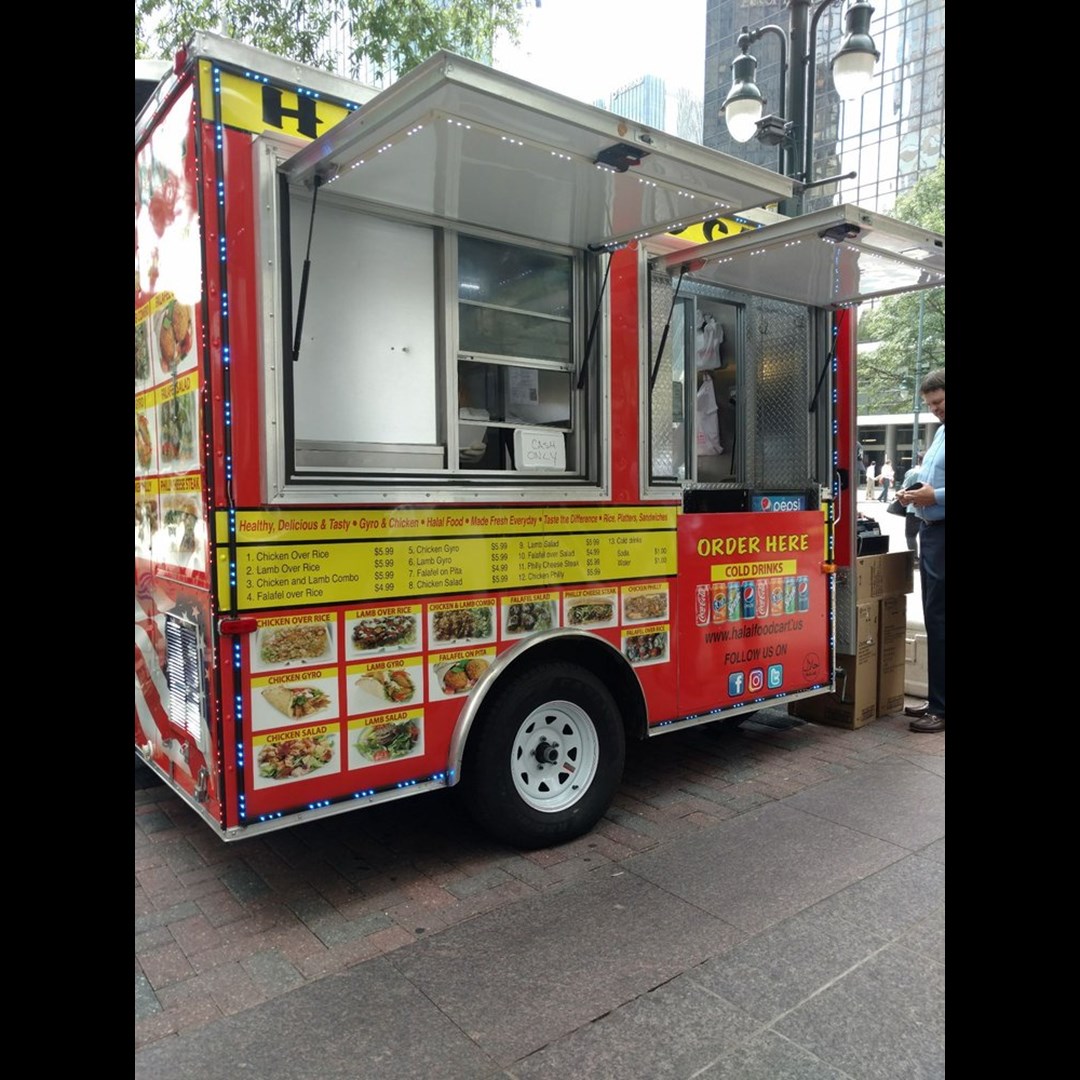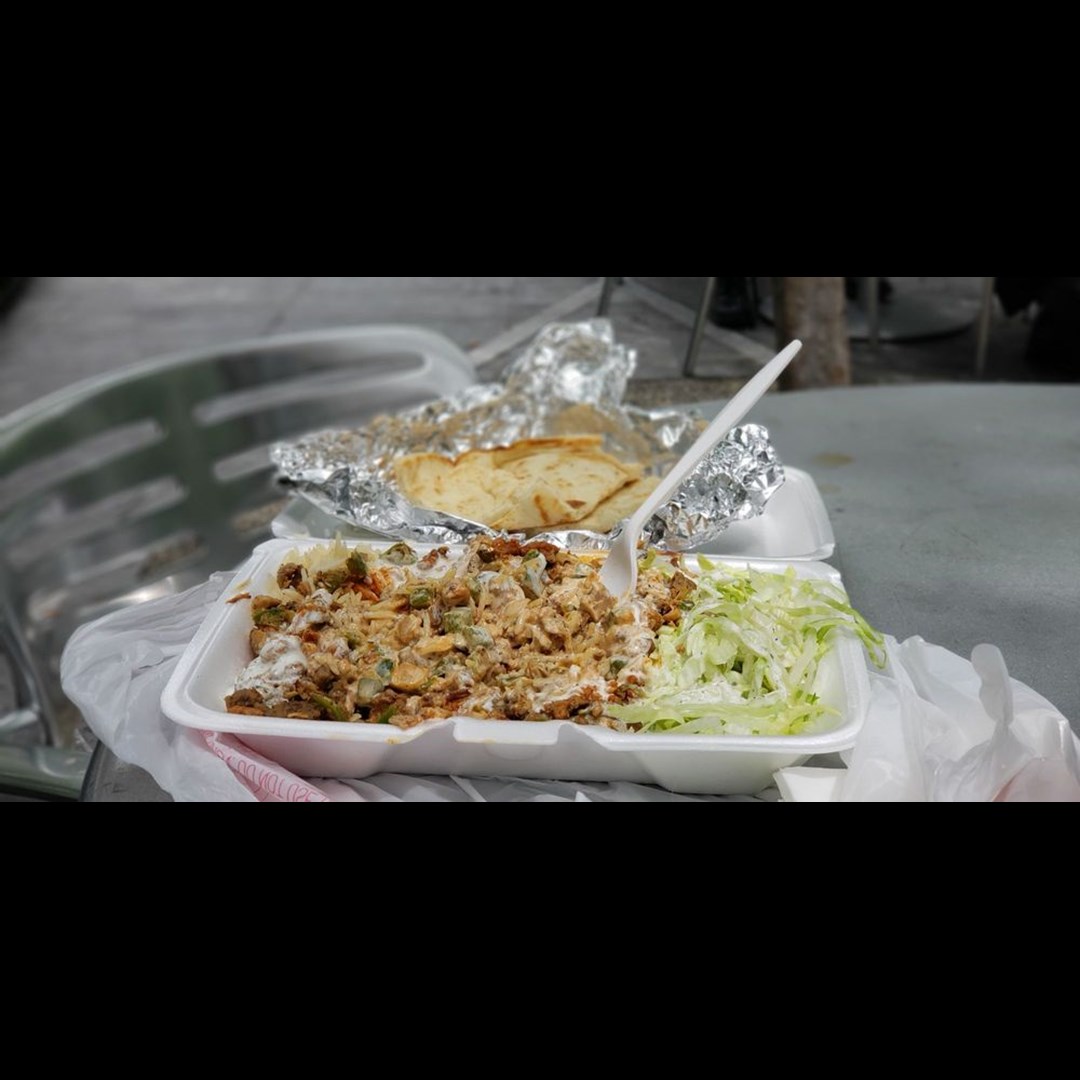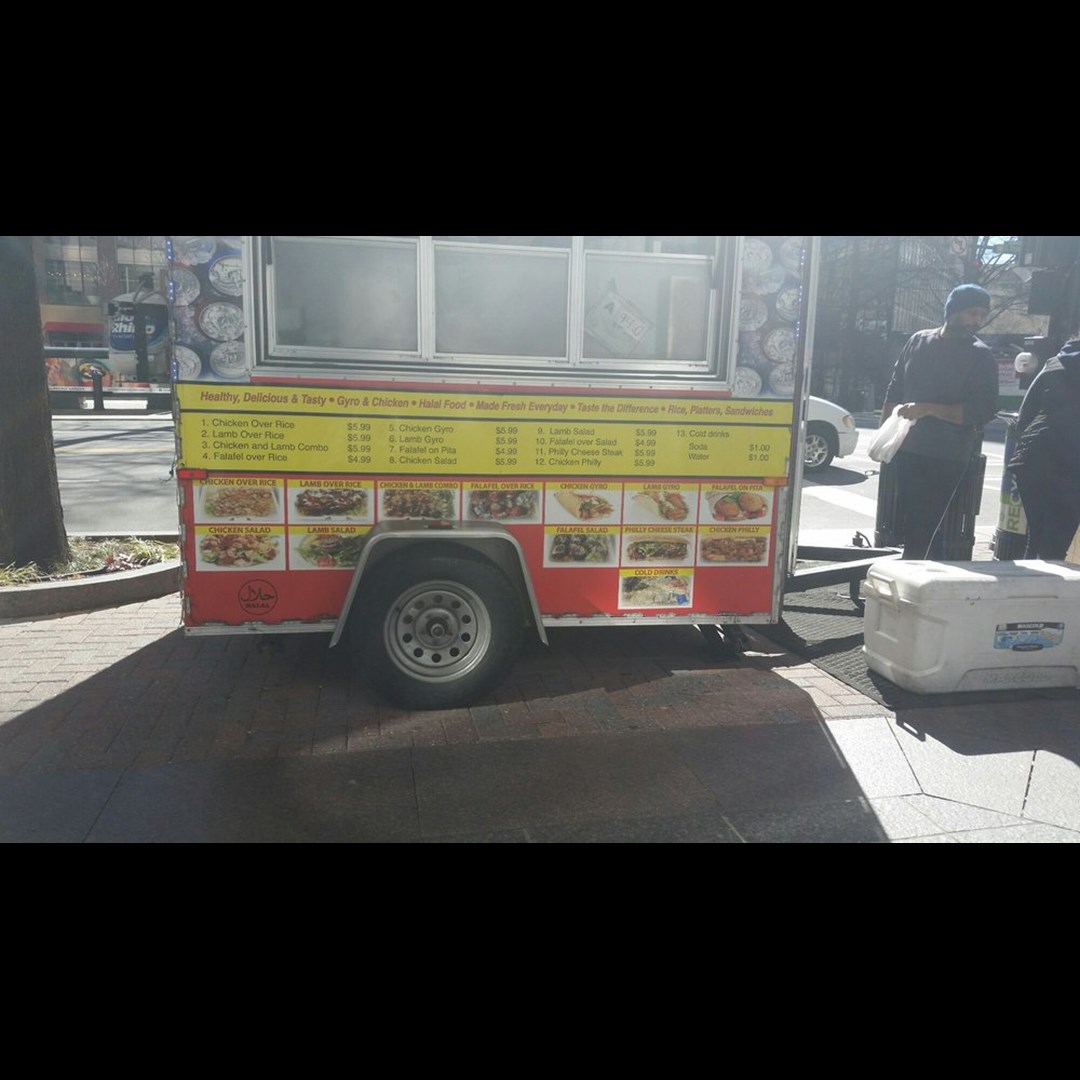Halal Food Trucks: Savoring Authenticity On Wheels
In an increasingly diverse culinary landscape, the concept of a halal food truck has emerged as a vibrant and essential part of urban gastronomy, offering not just meals, but a promise of adherence to specific dietary and ethical standards. This growing trend caters to a significant global Muslim population and an expanding number of non-Muslims seeking wholesome, ethically sourced, and delicious food options. From bustling city centers to quiet suburban streets, these mobile kitchens are bringing the rich flavors of halal cuisine directly to communities, making it more accessible than ever before.
The journey of a halal food truck begins with a deep understanding of what "halal" truly signifies. Far more than just a label, halal represents a comprehensive lifestyle principle rooted in Islamic teachings, encompassing everything from food preparation to ethical business practices. As these mobile eateries gain popularity, it becomes crucial for consumers to understand the foundational principles that govern halal food, ensuring they can confidently enjoy the diverse and delicious offerings from these unique culinary ventures.
Table of Contents
- What is Halal? Laying the Foundation
- The Rise of the Halal Food Truck Phenomenon
- Ensuring Authenticity: The Halal Certification Process
- Navigating the Menu: What to Expect from a Halal Food Truck
- The Economic and Cultural Impact of Halal Food Trucks
- Finding Your Next Halal Food Truck Adventure
- Challenges and Opportunities in the Halal Food Truck Industry
- The Future of Halal Food on the Go
What is Halal? Laying the Foundation
Before diving into the specifics of a halal food truck, it's essential to grasp the fundamental meaning of "halal." This Arabic term, meaning permissible or lawful, extends far beyond just food. In Islam, any act or object sanctioned by Islamic law is considered halal. While the term may be broadly applied to virtually any activity or object, it is used especially to refer to dietary restrictions. The concept of halal is central to Islamic practices and is derived from the Quran and the Sunnah (the teachings and practices of the Prophet Muhammad).
Halal food refers to any food or drink that is permissible for consumption according to Islamic laws. It means that the food has been prepared and processed in a specific manner that adheres to these sacred guidelines. These laws, known as Sharia, are designed to ensure cleanliness, ethical treatment of animals, and the purity of ingredients. A quick look at what is halal food and how to discern whether or not food is halal with expert insights from the American Halal Foundation reveals that authenticity is key. This comprehensive guide to understanding what is halal explores its various types, origins, and who follows it, offering tips on verifying authenticity. Halal means permissible in Arabic and refers to food and practices allowed under Islamic law, including strict dietary laws that prohibit items like pork and alcohol.
The Quranic and Sunnah Basis
The foundation of halal dietary laws is deeply rooted in Islamic scripture. In the Quran, the term halal is frequently used to delineate what is permissible and good for humanity. The divine guidance provided in the Quran, complemented by the practical examples and teachings of Prophet Muhammad (the Sunnah), offers Muslims a clear framework for their daily lives, including their dietary choices. This framework emphasizes not only what is allowed but also the ethical considerations behind food production and consumption. For instance, the Quran outlines specific animals that are forbidden (haram), such as pork and blood, and also prescribes the method for slaughtering permissible animals (dhabiha) to ensure their meat is halal.
Halal vs. Haram: Clear Distinctions
Understanding halal also requires knowing its opposite: haram, meaning forbidden or unlawful. Anything that doesn’t meet these guidelines is considered haram. This includes not just specific types of meat, but also ingredients derived from them, alcohol, and any food contaminated with haram substances. Halal meat is meat prepared within halal guidelines. Learning the specifics of this concept for the Muslim community, and learning more about how the traditional style of meat is prepared, is crucial for both consumers and food providers. For example, for meat to be considered halal, the animal must be healthy, slaughtered by a Muslim with a sharp knife, the name of Allah must be invoked, and the blood must be drained completely. These stringent rules ensure that the food is not only permissible but also wholesome and pure, aligning with the holistic principles of Islam. Discover what halal food is, its importance in Islam, and the difference between halal and haram foods, learning the principles, rules, and types of food permissible in the Islamic diet.
The Rise of the Halal Food Truck Phenomenon
The urban landscape has been transformed by the proliferation of food trucks, offering a dynamic and often more affordable alternative to traditional brick-and-mortar restaurants. For the halal food industry, this mobile format presents a unique opportunity. A halal food truck can reach diverse communities, serve at various events, and adapt to changing demand with remarkable agility. This flexibility is particularly beneficial for Muslim communities, who may not always have easy access to certified halal restaurants in their immediate vicinity. The food truck model bridges this gap, bringing authentic halal cuisine directly to where people live, work, and gather.
The appeal of a halal food truck extends beyond convenience. It often embodies the entrepreneurial spirit of immigrant communities, bringing traditional recipes and culinary heritage to a wider audience. These trucks often specialize in specific regional cuisines, from Middle Eastern kebabs and falafel to South Asian curries and biryanis, or even fusion dishes that blend different culinary traditions while adhering to halal standards. This specialization allows them to offer high-quality, authentic dishes that might be difficult to find elsewhere, making them popular destinations for food enthusiasts of all backgrounds.
Ensuring Authenticity: The Halal Certification Process
For consumers, particularly Muslims, the trustworthiness of a halal food establishment is paramount. This is where halal certification plays a critical role. A reputable halal food truck will either be certified by a recognized halal certifying body or will clearly demonstrate its adherence to halal principles through transparent sourcing and preparation methods. Certification involves rigorous inspections of ingredients, processing facilities, and preparation techniques to ensure full compliance with Islamic dietary laws. This includes verification that all meat is sourced from halal-slaughtered animals, that no cross-contamination with non-halal items occurs, and that all other ingredients (oils, spices, additives) are also halal-compliant.
Expert insights from organizations like the American Halal Foundation underscore the importance of this verification process. They educate consumers on how to discern whether or not food is halal, emphasizing the need for transparency from food providers. For a food truck, this might involve displaying their certification, clearly labeling ingredients, or having staff who can confidently answer questions about their sourcing and preparation. This commitment to authenticity builds trust with the customer base, which is vital for the long-term success of any halal food business.
Beyond Meat: A Holistic Approach
While halal meat is a significant component, the concept of halal food extends far beyond just the protein. It encompasses the entire food chain, from farm to fork. This means that even if a food truck serves primarily vegetarian dishes, the ingredients themselves must be halal. For instance, certain cheeses, flavorings, or even cooking oils might contain haram components (like animal rennet or alcohol-based extracts). Halal food is prepared, processed, and consumed according to Islamic dietary laws, known as Sharia. These laws are designed to ensure cleanliness, ethical treatment of animals, and the overall purity of the food. Therefore, a truly authentic halal food truck meticulously checks every ingredient, ensuring that their entire menu adheres to these comprehensive standards, providing peace of mind to their customers.
Navigating the Menu: What to Expect from a Halal Food Truck
The culinary offerings from a halal food truck are as diverse as the global Muslim community itself. While some trucks might specialize in classic Middle Eastern fare, others delve into South Asian, African, or even fusion cuisines. You might find succulent chicken and lamb gyros, flavorful falafel wraps, aromatic biryanis, hearty curries, or even innovative halal takes on American classics like burgers and hot dogs. For example, some trucks might offer locally loved halal Texas barbeque, fusion tacos, or the bold flavors of Indonesian food. The beauty of these mobile kitchens is their ability to bring authentic, often regional, dishes to a broader audience, expanding the palate of many consumers.
Many halal food trucks also offer a variety of vegetarian and vegan options, which are inherently halal as long as they are not cross-contaminated with haram ingredients or prepared with haram-derived substances. This makes them inclusive dining options for a wide range of dietary preferences. When exploring the menu, don't hesitate to ask about the ingredients and preparation methods if you have specific concerns. Reputable halal food truck operators are usually happy to explain their processes and ensure customer confidence in their halal offerings.
The Economic and Cultural Impact of Halal Food Trucks
The rise of the halal food truck isn't just a culinary trend; it's also a significant economic and cultural phenomenon. Economically, these trucks contribute to local economies by creating jobs, utilizing local suppliers (where possible), and attracting diverse customers. They represent a growing segment of the food service industry, tapping into a global halal market estimated to be worth trillions of dollars. This growth indicates a strong demand for convenient, affordable, and certified halal options.
Culturally, halal food trucks serve as vibrant hubs of community engagement. They often become gathering points for Muslim communities, offering a taste of home or familiar flavors in a new setting. Beyond that, they introduce non-Muslims to the rich and varied culinary traditions of Islamic cultures, fostering cross-cultural understanding and appreciation. These trucks are often present at community festivals, farmers' markets, and cultural events, further integrating halal cuisine into the mainstream food scene and showcasing its diversity and deliciousness to a broader audience.
Finding Your Next Halal Food Truck Adventure
Locating a reliable halal food truck can be an exciting quest for food enthusiasts. Many cities now have online directories, social media groups, or dedicated apps that track food truck locations. Festivals and events are also prime opportunities to discover new halal vendors. When searching, look for trucks that explicitly state "halal" on their signage or menu, and ideally, those that display their certification. Online reviews and community recommendations can also be valuable resources for identifying trustworthy and delicious options.
For example, in a city like Austin, Texas, the halal food scene is thriving. We serve halal food and Middle Eastern dishes and offer catering in the Austin area. You can check out restaurants in West Campus, or if you want to try the locally loved halal Texas barbeque at Alzer’s, fusion tacos at Urban Turban, or the bold flavors of Indonesian food at Yeni’s Fusion, there’s a map of some of the best options available. Learning about all the different halal restaurant options available in Austin and the greater Austin area, including Round Rock, Pflugerville, Cedar Park, Leander, and more, highlights the widespread availability of halal choices, extending beyond just food trucks to include traditional restaurants as well.
Austin's Vibrant Halal Food Truck Scene
Austin, Texas, stands out as a prime example of a city embracing the halal food truck movement. Its diverse population and thriving food scene have created a fertile ground for these mobile eateries. From established favorites serving traditional Middle Eastern fare to innovative fusion concepts, Austin's halal food trucks offer something for every palate. The city's food truck parks are often home to multiple halal options, making it easy for diners to explore different cuisines in one location. This concentration not only provides convenience but also fosters a sense of community among vendors and patrons alike, making the search for your next halal meal an enjoyable experience.
Challenges and Opportunities in the Halal Food Truck Industry
Operating a halal food truck comes with its unique set of challenges and opportunities. On the challenge side, maintaining strict halal compliance requires meticulous sourcing, dedicated preparation areas, and thorough staff training to prevent cross-contamination. The initial investment for a food truck, coupled with ongoing operational costs like fuel, permits, and maintenance, can also be substantial. Furthermore, competition in the food truck market is often fierce, requiring strong branding and consistent quality to stand out.
However, the opportunities are equally compelling. The growing demand for halal food, both from Muslim and non-Muslim consumers, presents a significant market. The flexibility of a food truck allows operators to test different locations, cater to events, and adapt menus based on popular demand. Social media and online food truck trackers provide powerful marketing tools, enabling trucks to build a loyal following. Moreover, the personal touch and unique stories often associated with independent food truck operators can create a strong connection with customers, fostering a sense of community around their offerings. As the global halal market continues to expand, the future looks bright for innovative and dedicated halal food truck entrepreneurs.
The Future of Halal Food on the Go
The trajectory of the halal food truck industry points towards continued growth and innovation. As awareness of halal dietary laws increases and demand for ethically sourced, diverse culinary options expands, these mobile kitchens are poised to play an even more significant role in urban food landscapes worldwide. We can anticipate more specialized halal food trucks, perhaps focusing on specific regional cuisines, gourmet halal options, or even healthy, organic halal meals. Technology will also continue to enhance their reach, with advanced ordering apps and real-time location tracking becoming standard. The future of halal food on the go is not just about convenience; it's about culinary excellence, cultural representation, and a commitment to ethical practices, all delivered right to your curb.
In conclusion, halal food trucks are much more than just a passing trend; they are a testament to the evolving culinary landscape, catering to diverse needs and tastes while upholding important religious and ethical principles. From the foundational understanding of what halal means, derived from the Quran and Sunnah, to the practicalities of finding these delightful mobile eateries, the journey of a halal food truck is rich with cultural significance and gastronomic delight. We encourage you to explore the vibrant world of halal food trucks in your area, support these dedicated entrepreneurs, and savor the authentic flavors they bring to your community. Have you tried a halal food truck recently? Share your favorite experiences or recommendations in the comments below, or share this article with fellow food enthusiasts!

Halal Food Truck

Halal Food Truck

Halal Food Truck